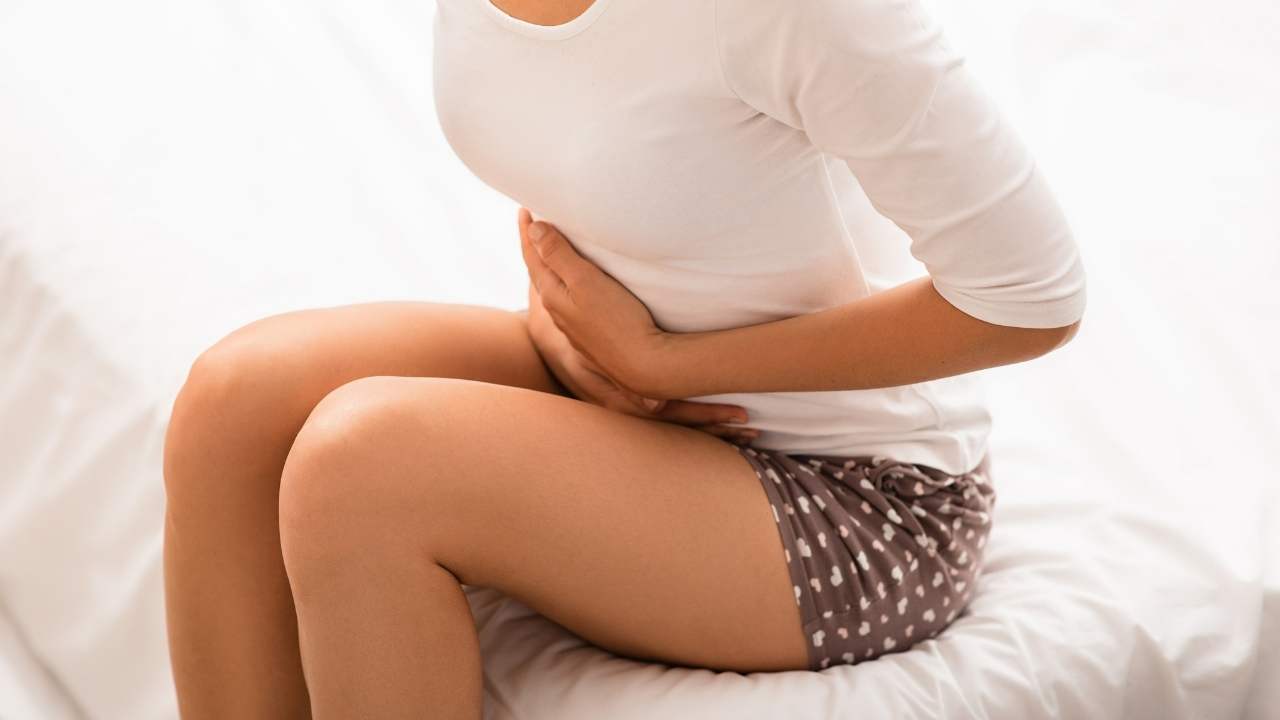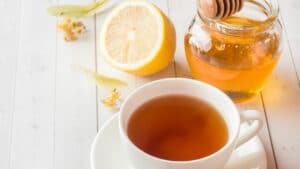Bloating is a common practice that is experienced by many women during periods. Period bloating is usually annoying and uncomfortable. Bloating is also accompanied by cramps which are deadly even. it’s completely normal and common. Many women made this realistic on social media by sharing their experiences. According to Diana Bitner, nearly 70% of women experience period bloating.
Why Does Period Bloating Happen in The First Place?
Usually, period bloating starts one to two days beforehand of periods. But some women may experience it even 5 days prior. What basically happens is that the estrogen levels are higher and the progesterone levels sharply drop in the body. “When estrogen levels become higher, our bodies tend to retain water”. Read also BENEFITS OF KEEPING FEET UNDER WARM WATER
The level of progesterone hormone increases in the latter half of our cycle, which makes the function of the digestive tract slow. Basically, this helps us in experiencing bloating or fullness.
Period bloating usually goes away after a few days of menstruating.
Other PMS symptoms other than bloating include:
- Mood swings
- Tiredness
- Cramps
- Acne
- Food cravings
- Swollen breasts
- Headaches
- backaches
So, What Could Help PMS Bloating?
Some easy steps could be followed to debloat your stomach. Some easy ones are to get more sleep or cooking often. Switching to potassium-filled foods can even help with debloating. Here are some tips that you could try for debloating. Read also WARM WATER BENEFITS: STAY HEALTHY AND FIT
1. Pick protein and potassium-rich foods:
Try to op for foods that act as natural diuretics such as celery, cucumbers, watermelon, lemon juice, garlic, and ginger. All these foods can make you feel lighter during periods.
Mostly try to fill in your plate with foods that won’t cause you puffiness. High potassium foods such as bananas, tomatoes, asparagus, and plenty of fluids are great options. Healthy fats such as chia seeds, nuts, and salmon also could be opted for.
2. Stay away from foods that cause gas:
Try to avoid veggies or foods that cause gas. Some common categories include beans, cabbage, cauliflower, and lettuce. Broccoli and brussels sprouts also should be avoided because they contain a complex sugar called raffinose. Humans lack the capacity to break it down properly which leads to gas and bloat.
3. Don’t skip your workout routine:
Generally, women don’t prefer to work out beforehand of periods. But workouts actually help to get up your heart rate which reduces PMS symptoms, including bloating. Those who lead a sedentary lifestyle have slower digestive systems. Lighter workouts like swimming and yoga should be the choice of interest. Higher intensity workouts promote inflammation and in turn bloats.
4. Cut back on caffeine and alcohol (just for now):
Before periods, alcohol can alleviate the symptoms of PMS just as breast tenderness, mood swings, and bloating. You should try to avoid the intake of caffeine though because coffee can overstimulate your digestive tract which can irritate bowel movements. The body feels dehydrated which causes it to retain water leaving it bloated.
5. Pop an OTC anti-inflammatory:
Ibuprofen and Naprosyn act as anti-inflammatory. They function by blocking the chemicals that cause inflammation which in turn, bloats. Before your period date take 200 to 400 milligrams every six to eight hours.
6. Nix the carbonated or sugary drinks:
Carbonated drinks become the first choice in order to relieve bloating symptoms. But this is not true. You feel even more bloated after consuming them, says Dr. Smith. The same goes for sugary drinks. Avoid using artificial sweeteners that cause you to puff up easily.
The best thing is you can go with simple plain water aiming for 2 to 3 liters a day. Some teas like peppermint, fennel, or green tea could even help to eliminate inflammatory mediators.
7. Score a little more shut-eye:
We generally feel sleepless with the pain of experiencing menstruation and bloating. So, during these crucial hours, the excess fluid in your belly is able to move back into the body and can be eliminated. So, try to aim to sleep for at least 6 to 8 hours.
8. Ask your ob-gyn about going on the pill:
Oral contraceptives have been shown to lower the effect of PMS by about 50%. They are not only great for birth control but also significantly reduce painful periods and help to stabilize hormones, says Dr. Roy.
9. Bring up a diuretic to your doc:
Some doctors even suggest some mild diuretics in order to get rid of period bloating. Many women experience different kinds of symptoms before their periods. Some feel heavier on the side so as their weight increases. Some women experience breast tenderness before their periods. This could be the reason because of water retention and mild diuretics could help in that case.
Caffeine is considered one of the natural diuretics which can be consumed on a regular basis. For some women, caffeine is not of their choice. In that case, plenty of water and other fluids could be taken. Do not restrict fluids.
10. Cook at home more often:
This might sound weird to hear how does cooking help to reduce bloating. But this is absolutely true. If you have the habit of cooking meals at home then you can plan your food the way you like.
Home-cooked meals drastically reduce bloating. When you eat outside at a restaurant,
“People are unaware of hidden salt in restaurant meals as well as in processed foods”. So, if we eat home-cooked meals, we cannot over-salt our meals. This could bring a huge difference which keeps bloating away.
11. Don’t suddenly overdo it on fiber:
Consuming fiber is good for health but does not overconsume when you experience bloating. When you feel bloated do not load up on more fruits and vegetables as this could backfire on your digestive system.
The reason could be that when we overload fruits and vegetables in large quantities our body is not used to it. This could result in increased bloating instead of reduction.
14. Avoid refined carbohydrates:
Refined carbohydrates such as white flour and processed sugars, can spike up blood sugar levels. when insulin level increases in the blood, our kidneys retain more sodium.
When there is increased sodium in the body it causes to retain more water. This way you could feel even more bloated. So, if you are trying to reduce water retention and improve symptoms of bloating then avoid refined carbohydrates.
When to see a doctor:
When women experience period bloating it’s quite an unpleasant experience. However, you need to carry it for the rest of the day.
It’s quite normal to experience. Try to bring some changes in your lifestyle so that you could be spared from the experience. However, if bloating continues still after periods, then there is a need to see the doctor. This is so sometimes bloating could be a sign of a serious health condition.
You can follow my Instagram handle @beautiful you for quick and easy updates.








